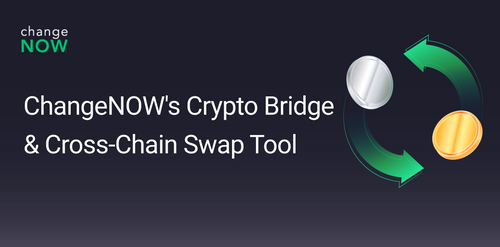Weekly Recap: Exchanges Publish ‘Transparent’ Records After FTX Crash
Binance Establishes Recovery Fund to Help Troubled Platforms
In a tweet on Nov 14, Binance CEO Changpeng Zhao announced that the exchange was creating an industry recovery fund.
CZ explained that the goal is to aid projects that are “otherwise strong, but in a liquidity crisis” due to the rippling effects of the FTX collapse. Since the exchange’s dramatic downfall some platforms have taken a downturn while others struggle to stay afloat. These include crypto lending firms BlockFi and Nexo, exchange platform Crypto.com and crypto market maker Wintermute among others.
Zhao did not reveal the criteria for platforms to qualify. However, in his tweet, he encouraged market players who believed they were eligible to reach out to Binance Labs, Binance’s venture capital division. The Binance CEO also invited other industry participants with funds to co-invest.
One response to the announcement questioned why FTX would even qualify for the fund. Zhao then clarified that the post was not referencing the failed exchange.
“Liars or fraud never qualify as strong projects. This is for other projects in the ecosystem,” he wrote.

Kraken, Coinbase, Gate.io Publish Proof-of-reserves with Liabilities
Since last week, crypto exchanges have been scrambling to publish their fund reserves to allay investor concerns about insolvency following FTX’s resounding crash. Binance CEO, Changpeng Zhao called for firms to carry out merkle-tree proof-of-reserves, revealing that Binance was set to do so.
“All crypto exchanges should do merkle-tree proof-of-reserves. Banks run on fractional reserves. Crypto exchanges should not,” CZ tweeted. “@Binance will start to do proof-of-reserves soon. Full transparency.”
Major exchange firms Kraken, Coinbase, and Gate.io have since released proof-of-reserves. They were among the first platforms to do so, taking care to also include liabilities in their audits, a step Binance didn’t take.
Both Crypto.com and Huobi have published proof-of-reserves. These platforms have also declared that they will be publishing a liabilities report.
El Salvador Shares Plans to Buy One BTC Every Day
El Salvador’s president and Bitcoin enthusiast Nayib Bukele announced in a Twitter post on Thursday that the nation would purchase 1 BTC every day. This comes as the crypto market battles the bears in the wake of the FTX collapse. El Salvador suffered some major losses to its 2,381 BTC holdings as the crash sliced 60% off the value of the country’s Bitcoin.
The nation’s chosen accumulation strategy comes as a response to the premier cryptocurrency plunging to new lows amid the crisis. El Salvador’s last BTC purchase occurred 3 months ago, however, the nation began buying Bitcoin again on Nov 18. El Salvador is using Dollar Cost Averaging; investing a small fixed amount regularly without considering market fluctuations.
The nation might be able to offset some of its losses, as this model may bring it more profit in the long term. Notably, Tron founder Justin Sun decided to follow El Salvador’s example;
“We echo @nayibbukele’s initiative in buying #Bitcoin daily,” Sun commented. “We will also buy one #Bitcoin every day starting tomorrow!”
Exchanges Pause Operations for USDC and USDT on Solana
On Thursday, Nov 17, Binance shared a release stating that it had halted deposits for the Solana-based versions of stablecoins USDC and USDT.
Binance was only one of several platforms to suspend support for the digital tokens. OKX, ByBit, and BitMEX were some other crypto companies that disabled deposits and/or withdrawals for the Solana-based coins. The week before, the exchange platform Crypto.com was one of the first to do so.
In an email to clients, the firm cited “recent industry events” referencing the FTX crash to explain its decision. Solana took a bad hit from the FTX crisis due to its close ties with the Sam Bankman-Fried-led exchange. Indeed, the smart contract platform recorded $700M worth of losses as the crypto company spiraled.
Binance later resumed deposits, however, OKX chose to delist the tokens entirely.
South Korean Authorities Confiscate $104M Assets From Terra Co-Founder
South Korean prosecutors have confiscated over $100M worth of assets belonging to TFL co-founder Shin Hyun-Seong (Daniel Shin). News of this emerged via a Nov 17 publication from local news outlet YTN.
A few months ago, the Prosecutor's Office reopened the TFL investigation as they work to build a case against the firm after Terra’s disastrous collapse. The authorities filed a request with the court to confiscate 140 billion won in profits which Shin illegally obtained.
Authorities claim he had secretly been selling pre-issued LUNA tokens at high prices without informing retail investors. He also reportedly provided Terraform Labs with sensitive client transaction data stolen from his other company, Chai Corporation. A South Korean court approved the request for a seizure to prevent the ex-Terra exec from disposing of the funds before his trial.
Shin’s lawyer claims the allegations and so far he is cooperating with the authorities. Meanwhile, Terra CEO Kwon Do-hying’s whereabouts are still a mystery.
FTX Hacker Swaps 50,000 ETH for BTC
The attacker behind failed platform FTX’s Nov 11 $600M exploit began swapping the stolen ETH for BTC. Crypto analysis company Chainalysis revealed this in a report on Sunday.
In the days following the hack, the culprit began converting the stolen assets to ether. This saw the perpetrator acquire one of the largest ETH holdings subsequently prompting concerns that they could dump the tokens. These fears were not unfounded as the hacker unloaded 50,000 tokens using the Ren protocol.
Crypto analyst kamikaz_ETH who was following the hacker’s activity shared updates on Twitter. The analyst noted at one point that the hacker still had $270m worth of ETH in their main wallet. However, the dump did see Ethereum fall from about $1220 to $1160 in a few hours. The token ultimately closed the day with a selling value of $1,140 which Kamikaz_ETH commented on.
“But if 50k ETH sells took us from $1220 to $1160, the remaining 200k ETH could do some serious damage to price,” he noted in a tweet.



